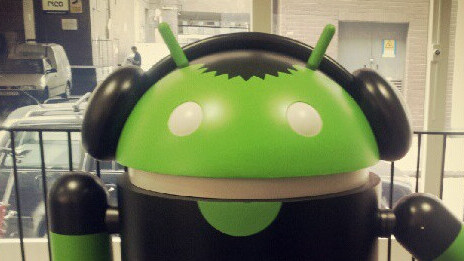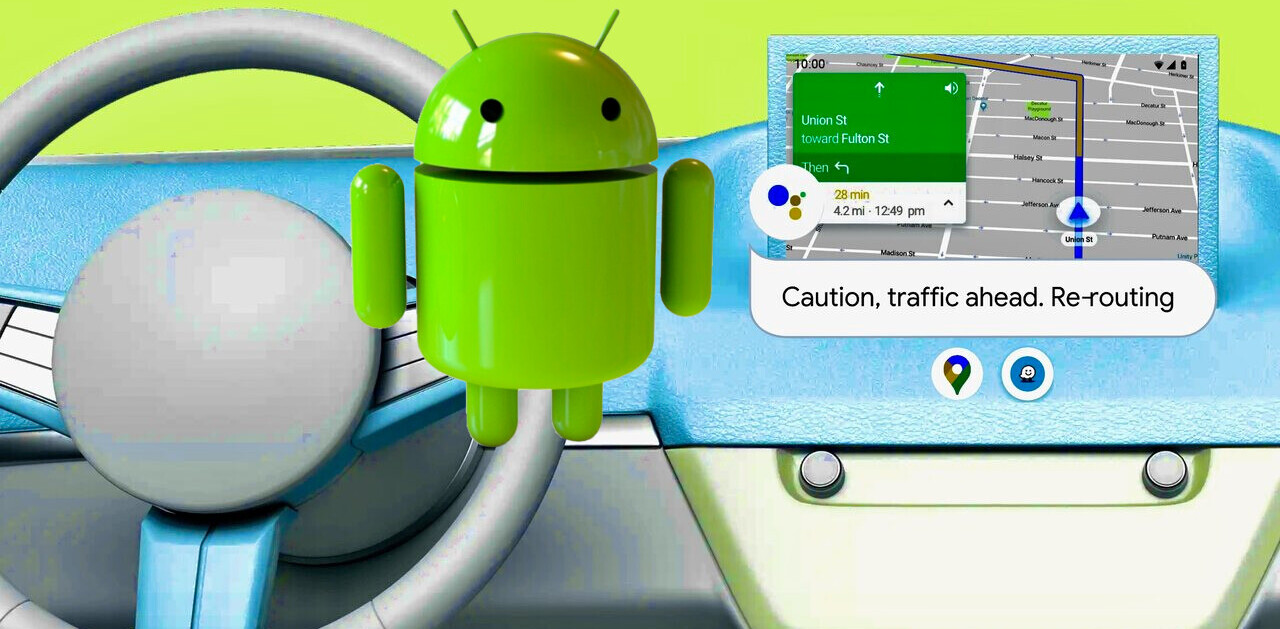
Okay, okay – retrospective “best of” pieces are sometimes best delivered with a 12-month time-frame in mind. But we’ve had so many Android apps hit our radar in the year to date, we thought the 6-month (ish) mark would be a good time to revisit some of the best and notable apps to hit Google’s mobile operating system so far in 2012.
Some of the apps we’ve covered on Android this year are completely new to any platform – be it from young startups or work-at-home freelancers. Others are from well-established tech firms that had either ignored Android completely, or were launching a new app.
Without further ado, here’s our pick of the Android bunch in 2012. So far…
Names you (probably) knew already
Google Chrome
What better place to start than with Google itself – Android’s master. Back in February, the Internet giant FINALLY released its Chrome browser for mobile, four years after its desktop counterpart hit the public realm.
http://youtu.be/lVjw7n_U37A
Along with being able to sync all of your bookmarks and browsing information across platforms, the Android team announced at the time that they have “re-imagined” tabs specifically for the mobile device.
It’s still in beta for now, and the bad news is it only runs on Android 4.0 (Ice Cream Sandwich) and above, though we imagine that once it sheds its beta tags, it will be made available on older version of the mobile operating system. The demos we’ve seen of it so far do indicate a very neat browser indeed.
Google Drive
In April, Google launched Drive, a desktop (Windows and OS X) and Android app that serves to replace Google Docs whilst also introducing a file-storage and sync service to the public. It’s kinda like Dropbox, but not really. Rumors about Google Drive had began to surface as far back as 2006, so to see it finally hit the market wasn’t entirely surprising.
Wikipedia
Wikipedia may have been one of the Web’s most recognizable brands for years, but it sure took its time to roll-out an official Android app.
An iOS app has been available since 2009, so it wasn’t entirely clear why it took more than two years to hit Android. But alas, in January this year it finally launched on Google’s mobile OS, and we must say it is actually a very nice app.
Vimeo
 YouTube may have been on Android for years, but its video-streaming little brother Vimeo was notable for its absence, especially as it did have a presence on iOS. That all changed in January though, when we reported that Vimeo was finally landing on Android, as well as Windows Phone and Kindle Fire. Talk about making up for lost time.
YouTube may have been on Android for years, but its video-streaming little brother Vimeo was notable for its absence, especially as it did have a presence on iOS. That all changed in January though, when we reported that Vimeo was finally landing on Android, as well as Windows Phone and Kindle Fire. Talk about making up for lost time.
Sky Go
UK satellite TV broadcaster BSkyB (‘Sky’) launched Sky Go back in July 2011, after merging its existing Sky Player and Sky Mobile TV services, and initially it was only available on iOS mobile devices.
Sky Go allows subscribers to watch both live and ‘on-demand’ video content on computers, mobile device and games consoles, and it’s available for free to Sky TV subscribers. In February, the app finally launched on Android, albeit with limited device support.
Airbnb
As with many apps, Airbnb took its jolly old time to shuffle beyond its iOS confines, but the private accommodation booking service finally landed on Android back in January.
A really fantastic app, and one that can only add to the San Francisco-based startup’s ‘disruptive’ credentials. Just don’t be too surprised if Airbnb is subjected to the same taxes as hotels in the not-too-distant future.
 Perhaps the most anticipated Android apps in a long time finally made it to the platform in April, having carved a little (by ‘little’, we mean ‘big’) niche for itself in the retro photo-filter space over on iOS.
Perhaps the most anticipated Android apps in a long time finally made it to the platform in April, having carved a little (by ‘little’, we mean ‘big’) niche for itself in the retro photo-filter space over on iOS.
Yes, Instagram has had a mammoth year so far, with the Android news subsequently eclipsed by its acquisition by Facebook for a cool $1bn.
Indeed, Instagram was thrust into the public glare as a result of this, and went on to enjoy a whopping 10m Android downloads in 22 days.
Social plus media?
Flipboard is an aggregation app that pulls content from the social sphere and digital publications and presents it in a beautiful, magazine-format application.
Designed originally for iPad, it finally landed on small-screen iOS devices last December before edging its way onto Android in June. That said, we did manage to get a hands-on with the app before its full public launch, so we already knew it was going to be sweet before it hit Google Play proper.
And now? Well, with a New York Times partnership under its belt, and Google on board for the ride too, we can expect to see Flipboard go from strength to strength.
Roku
We’re big fans of the Roku streaming box, a service that aims to replace cable TV. It starts at $49.99 and lets you watch Netflix, Hulu, Amazon Instant Video, HBO Go, and more. If you’re sick of having 500 channels with nothing on, you’ll find that the little Roku box packs a big punch.
Back in March, the company launched its first Android app, letting you use your mobile device as a remote control and tool for discovering new content.

“If you’re a Roku owner and Android user, this is an absolute must have,” wrote TNW’s Drew Olanoff at the time. “The app will work with all versions of the Roku player, so there’s no worry about your older device being a no-go.”
Songkick
 One year almost to the day since Songkick rolled out its iOS app in June 2011, the live music discovery platform finally arrived on Android.
One year almost to the day since Songkick rolled out its iOS app in June 2011, the live music discovery platform finally arrived on Android.
Songkick is a service that scans music on your device and lets you know about gigs and concerts in your area based on your music taste. You can also integrate it with Spotify, Facebook, Google Music, Pandora and Last.fm if you’re not one to store music physically on your device.
We like Songkick. A lot.
Crowdstream
Crowdstream is a free app for live events that can also put a few more pounds (or dollars) in the pockets of artists. The basic premise is to bring fans together around the artists they like and encourage them to interact during live events, such as concerts.
It’s worth checking out if you’re looking to meet new people based on a shared taste in music (or other live performance).
SnapNPlay
This app is more about the potential than what it currently offers, as we noted at the time when we covered this. It scans sheet music and plays it back to you, though from our testing it was far from flawless.
What I would say about this app, over and above how it actually performed at the time, is that the idea itself is awesome and it hints at the potential of such an app, if it can be honed and improved.
The developers says that they plan to continue working on this for years to come “making it better and more useful”, noting that they are already working on editing/deleting/adding notes, as well as improving the user interface.
➤ SnapNPlay | Android & Demo Version [Free]
Everyme
We first wrote about Everyme back in April, when it was iOS only. It hit Android a month later, before rolling out video-sharing functionality across all platforms.
Everyme is a private social networking app that actually solves some problems, especially when it comes to your address book.
The team behind it has an interesting story about how Everyme came to be, a story that evolved into a service that people are starting to use in their hordes.
Similar to Google+, Everyme lets you set up Circles of any type – for your friends, family, bar buddies or sports pals. You can share photos, messages and now videos with them, based on what that group is into.
Avocado
 We’ve seen our fair share of apps and services that cater exclusively to couples. One of the most recent ones to throw its hat into the ring is Avocado, which is backed by a number of US investors like Baseline Ventures, General Catalyst and Lightspeed Ventures.
We’ve seen our fair share of apps and services that cater exclusively to couples. One of the most recent ones to throw its hat into the ring is Avocado, which is backed by a number of US investors like Baseline Ventures, General Catalyst and Lightspeed Ventures.
More interestingly, behind the venture are former Googlers and husband-and-wife team Chris Wetherell (of Google Reader and Brizzly fame) and Jenna Bilotta (who previously worked on UX design for Gmail, Google Reader and YouTube).
Avocado launched in June, rolling out a personal communication service that works across iOS, Android deices and the Web, enabling couples to stay connected wherever they go.
Given the backing this app has, we reckon it’s one to watch.
WhosHere
Fresh from the launch of video chat on its iOS app, WhosHere finally launched its location-based chat app on Android.
Founded in 2008, WhosHere claims more than five million people globally have used the iOS app to make connections with local people. It lets users make spontaneous connections on-the-go with those nearby, for free, through text, calls and video (iOS only), tapping the GPS functionality on a user’s smartphone.
PlayUp
 You might not think that the world needs another social network, but the good people behind Australia-based startup PlayUp disagree.
You might not think that the world needs another social network, but the good people behind Australia-based startup PlayUp disagree.
Launched globally last October, the premise behind PlayUp is pretty simple – you choose a sporting encounter that you’re watching, and you set-up a virtual, private hangout to discuss all aspects of the game with your buddies. Or, if you feel like gatecrashing other rooms and chatting with complete strangers, you can do.
Funded to the tune of $50m, PlayUp finally hit Android in March. A really good idea and one that has the potential to take off in a big way, but at the time of writing it’s still looking to gain traction in key markets such as the UK and the US.
Zeebox
Social TV app Zeebox finally hit Android in April this year, letting users see what their friends are watching on TV and invite them to watch with you.
Backed by the mighty BSkyB, and a US launch imminent, Zeebox is looking like it could become the default social TV app of choice.
Getting things done…
Okay, we’ve already brought you 10 great Android apps to boost your productivity, but 2012 has been a particularly hot year for apps that help you get things done (GTD). And here are our pick of the bunch.
Jolicloud
After turning its attention towards a personal cloud service, Jolicloud came up with an extremely interesting offering for iOS, which we covered at its launch.
The march to centralize all of the information and items that you store in the cloud continued, as Jolicloud launched a version of the app for Android earlier this month.
I wasn’t sure whether to include this one or not, as it’s more of a rebrand than a completely new app. But it was given a complete overhaul, change of direction and subsequently became one of my top apps of the year.
So…Read It Later relaunched as Pocket, went free and focused on letting its existing 4.5m users save articles, videos, images & more. So less text-based, and more about media in general.
A great app that lets you synchronize content to catch up on across multiple devices.
Kicksend
Earlier this year we told you about Kicksend, the Y Combinator startup that lets you share files privately with friends. The service was already available for iOS, but it then went on to release an Android version of its app.
A great little app.
Pingit
 This is one specifically for UK Android users.
This is one specifically for UK Android users.
From February this year, any customer banking with Barclays was able to use the company’s mobile money transfer service, Pingit, which allows money to be sent and received using just a mobile phone number.
Barclays declared that Pingit was Europe’s first person-to-person service for sending money this way, requiring customers to own just a UK current account and a domestic mobile phone number. The service does away with bank details by linking a customer’s account to their mobile device.
The app was later opened up to customers of all UK banks, which makes this a potential game-changer.
Ovoto
If you ever have problems making decisions on what shoes to buy, which gig to go to or where to book your next holiday, this app will likely be right up your street. So what does it do?
In short, Ovoto lets you take a photograph and create an impromptu poll to help you reach a decision. The app connects with Facebook and Twitter and lets you ask your friends and followers whether you should do something based around the following seven verbs: buy, sell, go, do, eat, drink and wear.
An interesting idea, for sure.
Tawkon
To raise awareness and reduce the potentially hazardous risks of cell phone radiation, Tawkon arrived on the scene this year, claiming to be the only Android App that protects users from cellular radiation exposure.
The two key and most straight forward suggestions Tawkon provides are changing your location (just a few feet away and the phone radiation can drop) and distancing the phone from head/body — using a speaker phone headset or Bluetooth.
Goob Alarm
How many times does that 7.30am alarm call, timed to facilitate a quick cup of tea and toast with marmalade, translate into an actual 8.15am rise and smoke-from-your-heels sprint to the train station? More often than you’d care to admit, probably. Well, here is one simple solution that promises to help you out.
Tapping the WiFi signal strength in your home to determine your position, this Android alarm will only switch off when you are close enough to your router, which means you physically have to get out of bed to deactivate it.
A neat idea, and one that hasn’t been attempted elsewhere as far as we know. And it works, too.
Game for a laugh
We don’t cover a lot of game apps here on The Next Web. The ones that we do cover generally have some form of mass appeal, or otherwise a standout element that means we really can’t ignore them.
Whale Trail
So far in 2012, there have only been a handful of new Android releases we’ve deemed a good fit for TNW, one of which was Whale Trail which finally hit Android in January after a slow-burn period on iOS.
Whale Trail focuses on the plight of Willow the Whale, a flying aquatic mammal that you need to help escape the clutches of the evil Baron von Barry and his army of angry clouds, the Thunder Bros. Requiring deft touches of your device’s touchscreen, you loop the loop, swooping through the sky collecting bubbles and smashing enemies across seven stunning levels.
Addictive? Yup.
Temple Run
Temple Run finally arrived on Android in March, a title that is pretty much the game version of an Indiana Jones movie, with different characters and seemingly endless gameplay.
Its arrival on the Google-owned operating system followed on from the hugely popular iOS version. When Apple announced that 25 billion apps had been downloaded from the App Store, it named Temple Run as number 18 in its free app ranking.
Football Manager Handheld 2012
Fans of the perennially popular Football Manager series were able to continue their addiction to the beautiful game wherever they roamed, with a trimmed-down version for Android hitting Google Play back in April.
Football Manager Handheld has been on iOS for a couple of years already, with the 2012 edition available for Apple devices prior to the Android launch. However, the news that it finally ported over to Google-powered smartphones please millions of people.
Zombies, Run!
 Zombies, Run! is a Kickstarter project we covered last year before making it into app form back in March for iOS devices. The premise? Put simply, you keep fit by running away from zombies.
Zombies, Run! is a Kickstarter project we covered last year before making it into app form back in March for iOS devices. The premise? Put simply, you keep fit by running away from zombies.
The player takes the role of a zombie apocalypse survivor who carries out missions to gather supplies, with the drama playing out in fully scripted audio. The game rewards success in missions by giving the player access to further segments of the unfolding story – and all this takes place in the real world, with the user physically running as they hear the zombie noises get closer.
It launched on Android in June…a great concept, if a little pricey.
So…with only half the year gone, we’ve seen a tonne of sweet apps hit Android. We’ll be sure to revisit this list as we edge closer towards 2013 to see what other treats the year has in store.
Get the TNW newsletter
Get the most important tech news in your inbox each week.




